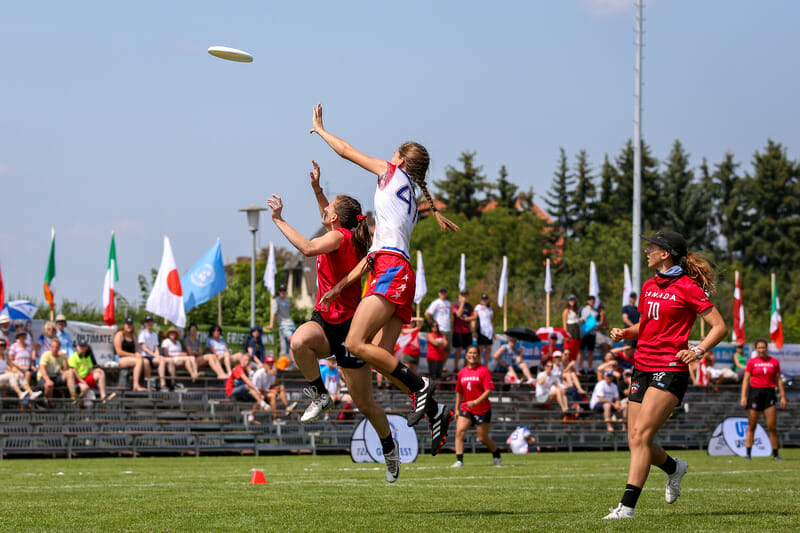The start of a new statistical framework for ultimate.
April 1, 2021 by Paul in Analysis with 0 comments

It was not my intent to take a year to follow up on the first Better Box Score Metrics article, but then 2020 didn’t really follow my script. Now, though, hope has taken a foothold, and it has inspired me to take up some unfinished business.
The goal of BBSM was to make the fairly obvious point that yardage is a key measurement in assessing offensive productivity, for two reasons:
- It’s important. Ultimate is a field-position game in which yardage gains increase the probability of scoring, just as in football. If stats are to reflect and reinforce good game play, they should include yardage.
- It’s plentiful. Yardage provides better resolution of relative contributions in a game or tournament than goals and assists.
BBSM included a couple of examples of how relying on goals and assists as proxies for offensive production often fails us. To give another example—where yardage data exist, they’re not hard to find—Pawel Janas had 816 yards of offense (172 yards more than the next closest player) and a single turnover in the AUDL 2019 All-Star Game; his +/- of 3 was 15th among all players, exactly average. Any system in which that performance comes out as “average” isn’t working well.
And so, with the expected 2020 season approaching, a season in which the AUDL and Ultiworld were both planning to expand the collection of yardage data, I introduced Yardage Plus/Minus (YPM) as a way to integrate yardage into a summary stat.1
For the BBSM sequel, the original goal was to convert YPM into a better rate metric. Rate metrics are typically sought to control for “usage” differences, and therefore to be both a fairer basis of comparison and a more versatile predictor of future performance.
But in adapting YPM, I found myself questioning its composition, particularly with respect to its fixed weighting for turnovers. This led to a longer detour than I imagined, but I’ve arrived in 2021 with a few new ideas.
You may want the short version, but you will be getting the long one. I’ll be posting a series of articles introducing some new metrics and recommendations of what I would like to see in a box score. I am a little conflicted. A focus on individual stats—a construct for measuring our differences and elevating the few—feels a bit at odds with ultimate’s admirable emphasis on team culture, and I’m sympathetic to any coach who would like to deemphasize them. But particularly at the more competitive levels of the sport, we quantify performance all the time, and if we’re going to do so, let’s at least do it in ways that better reflect how one plays ultimate well and contributes to team success.
With that as a quick refresher and background, let’s now move ahead by going back to square one.
Happily, the approach appeared to resonate with some data-philes; the terrific SOTG Stats, for example, quickly put it through its paces with some old AUDL data, while blackandtan7 adeptly adapted it for a look at the 2019 College Championships. ↩
Better Box Score Metrics: The Return & Introducing EDGE [Pt. 1] is only available to Ultiworld Subscribers
Already have a subscription? Log in
Whether you visit Ultiworld for our reporting, our podcasts, or our video coverage, you can help us continue to provide high quality content with a subscription. By becoming a subscriber, not only do you receive benefits like exclusive articles and full article RSS feeds, you also help fund all of Ultiworld's coverage in general. We appreciate your support!